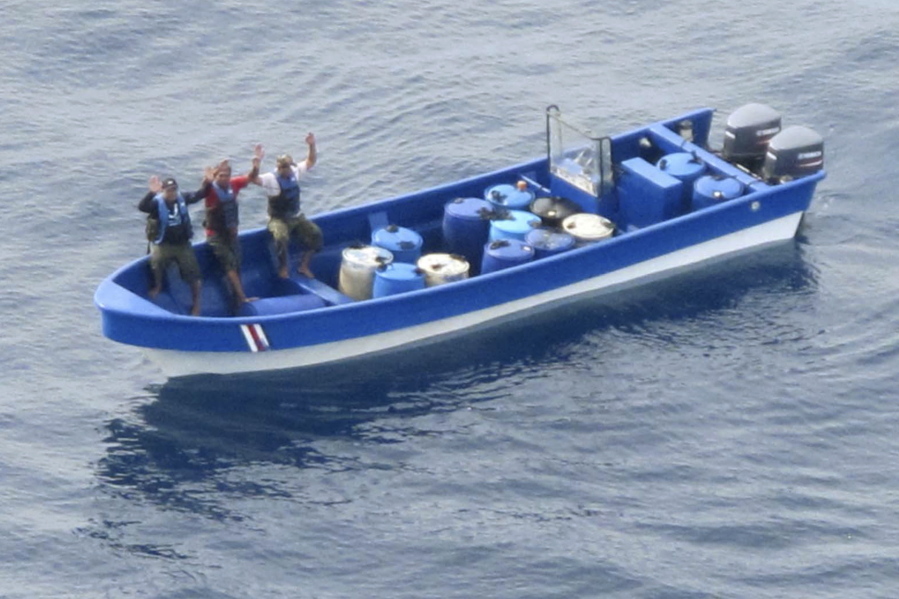MIAMI — A little-noticed federal appeals court ruling this year threatens a key weapon in the United States’ war on drugs: A decades-old law that gives the U.S. broad authority to make high-seas arrests anywhere in the world, even if the drugs aren’t bound for American shores.
It’s a law that’s used to round up and imprison hundreds of foreigners every year, mostly poor, semi-literate fishermen from Central and South America who make up the drug trade’s lowest rungs.
“It is a waste of U.S. taxpayer dollars to have these costly misadventures as we play drug police to the world,” said Eric Vos, head of the public defender’s office in Puerto Rico that brought the court challenge.
At issue is the Maritime Drug Law Enforcement Act, which defines drug smuggling in international waters as a crime against the United States and gives the U.S. unique arrest powers anywhere on the seas — whenever it determines a vessel is “without nationality.”
But how a vessel is deemed stateless sometimes gets messy.
That was the case for the Costa Rican plaintiff Jeffri Dávila-Reyes, whose appeal prompted the ruling. The Coast Guard chased down his speedboat in the western Caribbean in 2015 as he and two cousins were allegedly transporting five to 15 kilos of cocaine.
They identified their vessel as hailing from Costa Rica, according to the FBI’s summary of the investigation, but they lacked any documentation. When the U.S. asked the Costa Rican government to confirm the vessel’s registry, it responded 12 weeks after the bust that it could neither confirm nor refute the claim.
A few weeks later the men were charged and eventually pleaded guilty to possessing narcotics “on board a vessel subject to the jurisdiction of the United States.”
But a three-judge panel of the First Circuit Court of Appeals in Boston ruled in January that one of the law’s provisions — disavowing a captain’s claim of nationality — were an unconstitutional extension of U.S. policing powers beyond America’s borders.
Tellingly, almost none of those arrested under the law had ever set foot in the U.S. nor were they charged with trying to import cocaine. In Dávila-Reyes’ case, the cocaine he was accused of transporting was purportedly headed to Jamaica.
Despite the ruling that threw out his conviction, Dávila-Reyes remains behind bars seven years into a 10-year sentence as the Justice Department seeks reconsideration by all of the First Circuit’s nine judges.
For now, U.S. law enforcement continues to conduct regular search and seizures on the high seas with little indication of concern.



